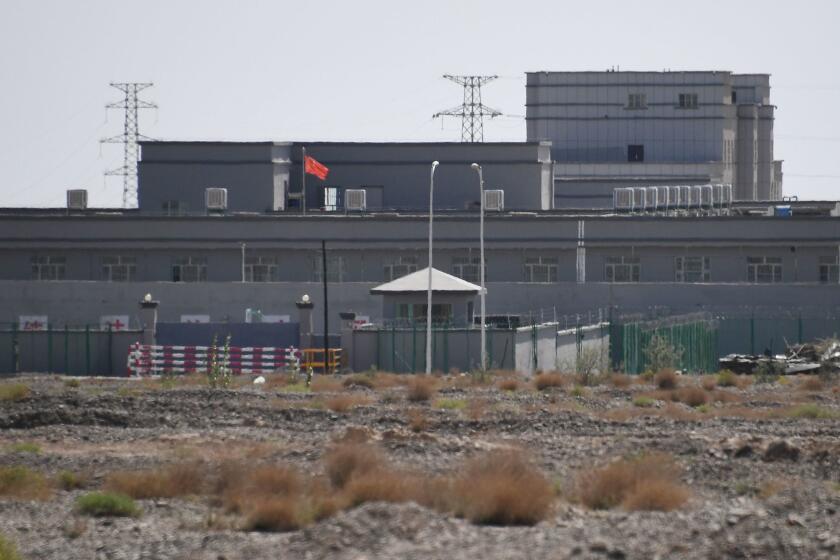Disney’s ‘Mulan’ under fire again, days after #BoycottMulan flared up
- Share via
On the heels of the #BoycottMulan campaign reigniting on social media last week, Disney’s live-action “Mulan” has come under fire again.
This time the film is courting controversy for crediting a number of Chinese government entities in Xinjiang, a region where authorities have been accused of human-rights abuses, such as operating “reeducation camps” that detain minority Muslim Uighurs.
After the remake’s Disney+ debut on Friday, eagle-eyed viewers and human-rights activists took to social media to highlight the end credits, which thank the Turpan Municipal Bureau of Public Security and the Publicity Department of CPC Xinjiang Uyghur Autonomy Region Committee, among others in the region.
The public security bureau is reportedly tasked with running China’s so-called reeducation camps where Uighurs are held in detention. And the publicity departments are responsible for producing state propaganda that has worked to deny the detention program’s existence.
A rep for the Walt Disney Co. did not immediately respond to The Times’ request for comment on Tuesday.
The camps are believed to force assimilation into Han Chinese culture through mass detention, reeducation and labor that Beijing has implemented in Xinjiang since 2017 — one that now reaches global supply chains and U.S. consumers.
Last year and again in July, the U.S. Commerce Department sanctioned several Xinjiang entities implicated in human-rights violations and abuses for operating a “campaign of repression, mass arbitrary detention, forced labor, involuntary collection of biometric data, and genetic analyses targeted at Muslim minority groups from the Xinjiang Uyghur Autonomous Region.”
The Chinese government has characterized its work in the region as “China’s efforts at counterterrorism and de-radicalization in Xinjiang.” But the United Nations has accused the country of holding more than a million Muslims in the secret web of internment camps.
China scholars and human-rights activists have been discussing Disney’s work in Xinjiang for weeks, saying the film’s production coincided with the peak of the administration’s reeducation campaign.
It’s the latest anti-democracy controversy to hit the Disney film. Social media users twice called for a boycott of “Mulan” — one of the year’s biggest releases — after its star heroine, Yifei Liu, drew sharp criticism last year for supporting Hong Kong police despite their excessive force against pro-democracy protesters resisting the mainland Chinese government.
A new report says Chinese authorities have been sending Muslim-minority Uighurs from concentration camps to factories where they are forced into labor.
On Friday, Disney began offering the oft-delayed “Mulan” for $30 to Disney+ subscribers, eschewing the film’s planned cinematic debut. It will screen theatrically only in markets where Disney+ is not available.
Internationally, the remake earned $5.9 million in a handful of smaller international markets, placing No. 1 in the United Arab Emirates, Malaysia, Singapore and Thailand. Next weekend the film will expand to China and Russia.
More to Read
Only good movies
Get the Indie Focus newsletter, Mark Olsen's weekly guide to the world of cinema.
You may occasionally receive promotional content from the Los Angeles Times.











